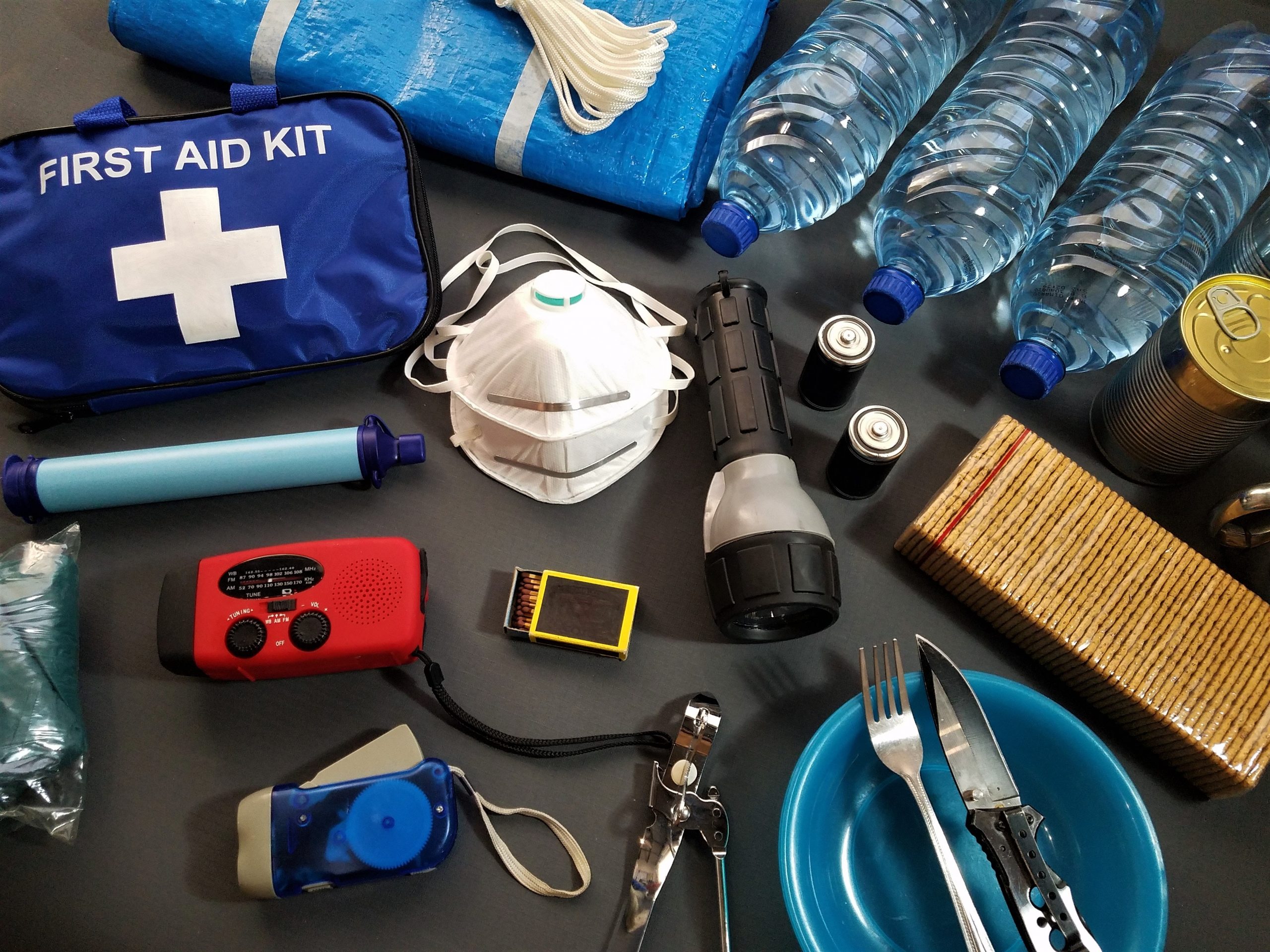Emergencies and disasters can happen at any time! Emergency preparedness is important to keep yourself safe and minimize damages. A key piece to being prepared is making sure you have the appropriate supplies and equipment necessary for survival. That’s where emergency preparedness kits come in handy.
What should you include in your emergency preparedness kit?
Basic supplies include
- 1 gallon of water per person, per day (multi-day supply for drinking and sanitation)
- Non-perishable food (minimum of a 3-day supply)
- Flashlights
- Battery-powered or hand-crank radio
- Extra batteries
- First aid kit
- Multi-purpose tool
- Whistle
- Plastic sheeting and duct tape (for shelter)
- Emergency blankets
- Maps of the area
- Personal sanitation supplies, including moist towelettes, garbage bags, and plastic ties
- Cell phone with charger(s) and a backup battery
- Family and emergency contact information
- Copies of personal and legal documents (pertinent medical information, passports, birth certificate, insurance policies, etc.)
Additional supplies include
- Medical supplies
- Baby supplies
- Pet supplies
- Two-way radios
- Extra sets of car and house keys
- Manual can opener
- Prescription and over-the-counter medications (7-day supply)
- Masks and disinfectant supplies
- Extra cash
- Complete change of clothes and sturdy shoes
- Matches
- Mess kits
For more information about what to include in your kit, visit Ready.gov or American Red Cross.
You never know where you’ll be when a disaster occurs, so it’s important to be prepared for any situation. At minimum, have a kit to keep at home, at work, and in your car. After assembling your kits, make sure food is stored tightly and kept in a cool, dry place. Replace expired items as needed. Maintaining the kit is important for ensuring that it is ready should disaster occur. Review and update your kits as needed once a year.
If you have been affected by a natural disaster in Oregon or Washington or would like to learn more about how we can help, reach out to us today.


